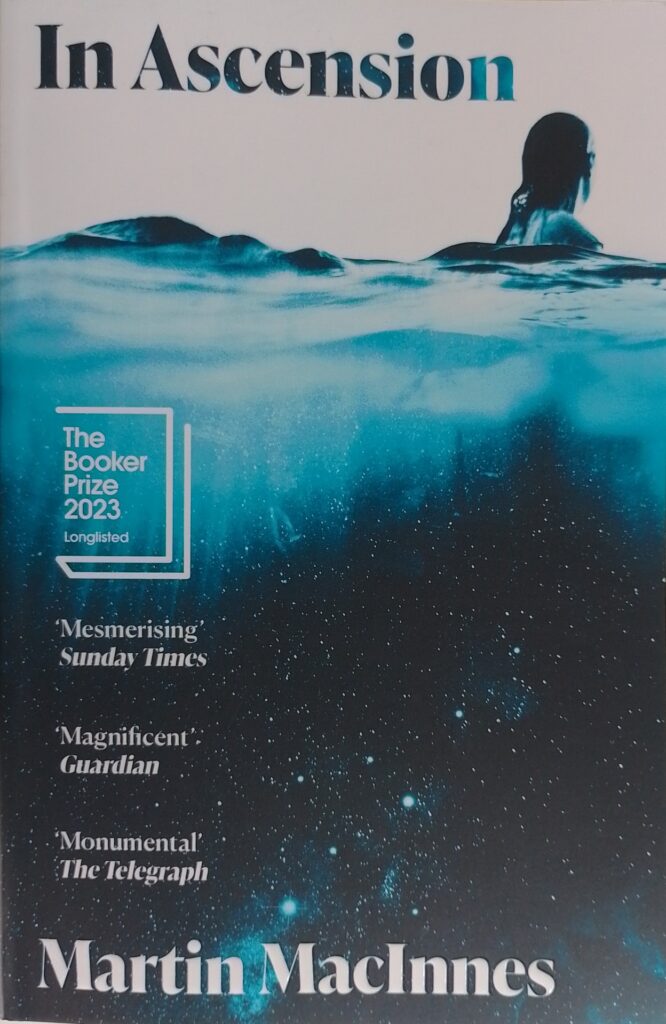First published 2023. Atlantic paperback, 2024, pp 496, c.100,000 words.
This is one of the very best modern books that I have read. The beauty and subtlety of the language shines out from first to last, and so much contains what Hilary Mantel called ‘a wobble in every sentence’: the true nature of human communication. Ambiguity abounds, perspective alters the interpretation of events. There are things going on that are beyond human experience and comprehension. Even the book’s title has at least five meanings. The story shares an exploration of the boundaries of the known and the unknowable with two of the greatest science fiction creations: Lem’s Solaris and Clarke’s 2001. It matches them for ideas, and it is better written than both, although Lem’s is very good.
Ostensibly the book has a simple, linear structure: the life story of the protagonist, Leigh Hasenbosch, told mostly from her point of view and in chronological order. What a relief not to have to struggle with timelines and multiple perspectives that disfigure so many modern novels. Leigh is born in present day (or thereabouts) Holland, ‘22 feet beneath the sea’ we are told in the first line, which pre-figures much of what is to follow. Her childhood is difficult, but she emerges as a brilliant and driven marine biologist.
The book might be read as an exploration of family, yet those relationships are unfocused and only emerge in the interstices of the story. There are recurring themes that resonate: the circle of life, the sea as origin, swimming, burning skin.
Something is slightly out of kilter with this Earth. In the background are negative impacts of climate change and unexpected scientific breakthroughs. Strange and inexplicable events occur. Yet it all seems very rational, scientific rather than magical. J. G. Ballard’s worlds come to mind: the same air of detachment and reality seen through a distorting lens that illuminates the human condition.
Almost every page had some piece of writing that deserves savouring, accumulating a hypnotic power as layer is added on layer. In selecting illustrative fine writing one is spoilt for choice. Three examples:
‘I looked into the water with eyes that were born there, several billion years before. This challenged me, reduced me and provoked me, but it also instilled in me a desire to keep going, to keep pushing, to continue this exploration just as far as I could take it, across the remainder of my conscious days. [p93].
‘The upper distances implied the gulf open beneath us, and as the stars were like punctures through darkness the vents such as the Atlantic crater and the Mariana Trench were similar holes cut in the Earth’s crust, the light of distant stars and the light of Earth’s furnace, contrasting indications of a generally hidden illumination. Above us and below us this brilliant radiance.’ [p98].
‘The parrots’ rictus grins and glassy stares, as they repeated words without comprehension, seemed to expose something terrible in our endeavours, a futility we desperately covered over. The spaceports and the rockets unreal, an extended dream, a reverie spun out from something psychotropic in the trees.’ [p295-6]
Despite all the ambiguity and the never fully explained, MacInnes manages to drive what seems a fast-paced story. We want to know what happens to Leigh. The science is coherent, human motivations plausible, characters complex and real.
Being picky, there are mixed units of measure used (feet and metres), Ascension Island is implausible as a staging point for a cable from Rotterdam to Montreal [p452] – the real island being in the South Atlantic. There are a few minor typos: ‘high electrons’ [p388], ‘ratio’ for ration [p466]. Jupiter doesn’t look ‘too perfect, too controlled’ [p357] with its turbulent, colourful atmosphere. We are fed a bit of history of Ascension Island that seemed unnecessary [p433].
Like Solaris and 2001, this is as much an exploration of what lies within as a journey outward. As flawed humans, we are incapable of complete understanding, in part because there is no such thing. This is an astonishingly well written book, a deeply engaging story, and one of the very finest pieces of science fiction as well as literary fiction. Highly recommended.
Wikipedia biography of MacInnes: https://en.wikipedia.org/wiki/Martin_MacInnes
Wikipedia summary of the book: https://en.wikipedia.org/wiki/In_Ascension
Others’ reviews of the book: https://www.goodreads.com/book/show/197063361-in-ascension?from_search=true&from_srp=true&qid=aVTmiIehwU&rank=1
© William John Graham, May 2024

